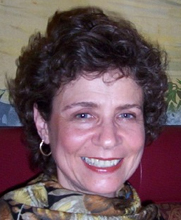|
|



Questions & Answers - March 2003

|
Mary C. Fridley, RN,C is a registered nurse certified in gerontology with more than twenty years in the geriatric health field. She is the owner of Gero-Resources specializing in caregiver, eldercare, and successful aging education and advocacy. Mary is also an author of two caregiver advice columns and contributes articles to various websites. She is available for speaking engagements and would be happy to answer your questions or concerns while maintaining your anonymity.
About Mary
Mary's Column Archives: Caregivers'
Questions & Answers
|
Dear Mary,
I’ve been caring for my disabled husband for the past six months. He had a stroke that left him in a wheelchair and basically housebound. As a result I’m housebound, too. I read your column so know I should take care of myself. I would like to start attending church again on Sundays. However, there is no one available to stay with him. I’m afraid if I leave him alone something terrible will happen. He says he wants me to go out but I feel guilty. Friends have said to call if I need anything but I don’t think they really mean it. I’ve considered hiring someone for a couple of hours but am uncomfortable with a stranger in the house. Please give me some advice on what to do.
You are your worst enemy. You’re sabotaging yourself through guilt and by double guessing other’s intent.
You say your husband encourages you to get out. Have you look into an emergency response device that he can activate in case of an emergency? If he isn’t cognitively impaired and can be left alone for periods of time, this could be the answer. LifeLine is the best known and is worn as a necklace. When squeezed, a signal is sent to an emergency response center.
As for offers by friends, take them up on them. Most people really mean it when they offer help, they just don’t know what to do. It’s up to you to contact them and tell them. I know it’s difficult but pick up the phone and tell a friend you need help, don’t ask. For example say, “Sally, you offered to help me when I needed it so I’m taking you up on it. I‘d like to attend the 10am service on Sunday and need someone here with my husband from 9:30 to 11:30, can I count on you?” Remain silent and wait for Sally’s response. If she says “no”, so what? You’re not any worse off than when you started. Keep going down your list of friends until you find someone.
It’s also a good idea to contact your place of worship. Most faith communities have outreach programs and may be able to schedule members to take turns.
Hiring someone is not as bad as you think. There are many qualified people in the field who are reliable and honest. The best way to get someone is through word of mouth. Ask friends, relatives, and healthcare providers if they know of someone and contact your local Area Agency on Aging. There are also private and non-profit agencies that provide this service whose employees are bonded and insured.
Don’t give up, your needs are just as important as your husband’s needs. Good luck.
Good luck.
Dear Mary,
I have two questions, first, what is the difference between dementia and Alzheimer’s disease and second, why does it matter?
These are questions I’m frequently asked and it’s important to understand the difference because it does matter.
Dementia is a broad category of disease processes that effect the brain and cause cognitive (knowing/intellect) and functional changes. There are many types like Dementia with Lewy Bodies, Picks Disease, and dementia from stroke just to name a few. The most common is Alzheimer’s disease. So to put it in simple terms, Alzheimer’s disease is a dementia but not all dementias are Alzheimer’s disease. It’s important to know what kind of dementia a person has because the cause, presentation, progression, and management are different. For example, dementia from stroke can present differently in people depending on where damage occurred in the brain. It doesn’t have to progress if the cause is known and another stroke can be prevented. Alzheimer’s disease on the other hand is progressive and the cause is not known. We do know what changes occur in the brain but don’t know what triggers them. It doesn’t progress at the same rate with everyone but everyone eventually goes through the same basic stages. We also know that behaviors are an issue and what techniques to employ to manage them.
It’s important to understand that dementia is not a mental illness it’s organic meaning, damage occurs to a bodily organ on the cellular level.
This explanation is short but I hope it’s helpful.
God Bless.
Email Mary: info@gero-resources.com
Gero-Resources.com
Featured Experts - Main Page
It is illegal to reprint articles, in any format (including emails, websites, etc.), without explicit written permission from the author of this article and / or Empowering Caregivers™
|
|

